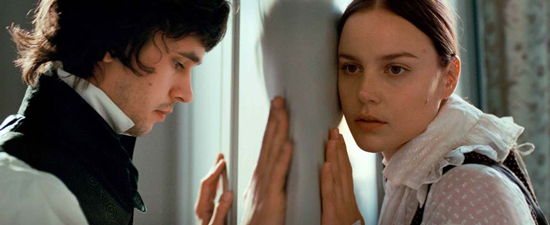
Director: F. Gary Gray, 2003. (PG-13)
The Italian Job was originally a British film from the 60s starring Michael Caine (Sleuth) and featuring English TV comic Benny Hill. Set in Turin, its highlight was a traffic jam and three Mini Coopers maneuvering through the log-jammed streets. Gray's version is not so much a remake as a redo, a new movie inspired by its former namesake. All it has in common are the Minis and the jam.
The film opens in Venice as a theft is underway: of $35M of gold bullion. Charlie Croker (Mark Wahlberg) is leading the gang for the first time, having taken over the reins from John Bridger (Donald Pleasance), recent-parolee and safe-cracker extraordinaire. Rounding out the crew are computer hacker Lyle (Seth Green), wheel man Handsome Rob (Jason Statham), explosives expert Left-Ear (Mos Def) and inside-man Steve (Edward Norton). The plan is perfect, the execution flawless, and the getaway fast and furious. All seems a success, until Steve double-crosses them and takes it all for himself, killing one and leaving the rest for dead.
 Having introduced the plot in Italy, The Italian Job leaves Europe and moves to Los Angeles for the final two acts. It's a year later, and Charlie's pursuit of Steve is rewarded. He has found him living under a new name with the profits of their heist. Pulling his team together, Charlie sets out to rob the robber. But he needs another safe-cracker, and he brings in Stella Bridger (Charlize Theron), John's daughter. She is as good as her dad, but an honest women, having experienced the consequences of the criminal lifestyle: the separation from her father during his prison stints.
Having introduced the plot in Italy, The Italian Job leaves Europe and moves to Los Angeles for the final two acts. It's a year later, and Charlie's pursuit of Steve is rewarded. He has found him living under a new name with the profits of their heist. Pulling his team together, Charlie sets out to rob the robber. But he needs another safe-cracker, and he brings in Stella Bridger (Charlize Theron), John's daughter. She is as good as her dad, but an honest women, having experienced the consequences of the criminal lifestyle: the separation from her father during his prison stints.The new "Italian job" is no longer about the payoff, it's about the payback. Money is immaterial, although a pleasant side-effect. Charlie wants revenge. So does Stella, and this is the only reason she would turn her back on integrity and turn to crime.
 This new version is a lightweight summer flick that has a reasonable plot, some terrific chases, and mostly workmanlike acting from a well-rounded cast of big-name actors. Indeed, the two leads, Wahlberg and Norton, seem uninspired. Norton is going through the motions. This was not a movie he wanted to make, but was contractually obligated to Paramount for a three movie deal and was forced into this role (Primal Fear, his breakthrough film was the first). It's not as memorable as the original, but certainly a fun mini-ride with enough suspense to keep us watching to the finale.
This new version is a lightweight summer flick that has a reasonable plot, some terrific chases, and mostly workmanlike acting from a well-rounded cast of big-name actors. Indeed, the two leads, Wahlberg and Norton, seem uninspired. Norton is going through the motions. This was not a movie he wanted to make, but was contractually obligated to Paramount for a three movie deal and was forced into this role (Primal Fear, his breakthrough film was the first). It's not as memorable as the original, but certainly a fun mini-ride with enough suspense to keep us watching to the finale. The Italian Job is not simply a caper movie; it is a revenge for broken trust film. In a scene where Stella is having dinner with Steve, reluctantly but to aid the team, he asks her, "Still don't trust me?" She replies, "I trust everyone. It's the devil inside them I don't trust." Trust is an issue for Stella as much as it is for Charlie. Her father had let her down too many times with empty promises. Steve had betrayed Charlie's trust.
The Italian Job is not simply a caper movie; it is a revenge for broken trust film. In a scene where Stella is having dinner with Steve, reluctantly but to aid the team, he asks her, "Still don't trust me?" She replies, "I trust everyone. It's the devil inside them I don't trust." Trust is an issue for Stella as much as it is for Charlie. Her father had let her down too many times with empty promises. Steve had betrayed Charlie's trust.Trust is something earned. It is built over time. When we do what we say, as we walk our talk, our credibility is created. This is part of our character, and something we need to cultivate. Yet it takes only a moment and a single action to destroy years of trust. As Steve's actions in Venice demonstrated, trust lost is hard to be regained. Two thousand years ago, one of Jesus' twelve closest friends had built a similar trust with him (Matt. 10:1, 4). Yet, a moment of action in the garden and Judas betrayed Jesus to the authorities (Matt. 26:47-49)). That betrayal destroyed their trust-relationship resulted in Jesus' crucifixion and led to Judas' suicide (Matt. 27:5). Betrayal is a damning thing.
The Italian Job is not a deep film, but its dialog offers fruit for reflection. The line, "It's the devil inside them I don't trust" is repeated and proves pivotal in the plot-development. Stella's philosophy, demonstrated in this statement, is that human nature itself is good and trustworthy, but people may allow Satan to influence or even possess them. The lies and deceptions that eat at the heart of trust are the product of the devil, not the person. But this is errant theology.
Biblically, human nature has become corrupted by the fall, the original sin in the garden (Gen. 3:6). Now we don't need the devil to enable us to lie; our depraved nature can do it all by itself, thank you very much. There is still some goodness, a product of the imago dei present (1 Cor. 11:7), without which any trust would be impossible, yet our inherent nature is selfish and protective. We tend toward betrayal. But for the grace of God, Steve or Judas could be us. But by following Jesus, we are redeemed and given a new nature (2 Cor. 5:17), one that allows trust over betrayal.
As a caper movie, we pull for the criminal, though we know he is likely a violent sociopath. Early on, John Bridger gives Charlie some "sage" advice, criminal to criminal: "Charlie, there are two kinds of thieves in this world: the ones who steal to enrich their lives, and those who steal to define their lives. Don't be the latter. Makes you miss out on what's really important in this life." Obviously, most of us don't endorse crime, and would not want to resonate with the thieves here. But if we look at what they are as thieves we can see their stealing as work and modify the statement.
When we do this we see the truth in Bridger's point. We can work to enrich our lives or we can work to define our lives. Many people see work as self-defining. When asked about themselves, who they are, they respond with what they do, their work. They are defined by their job. "I am an engineer," as opposed to "I work as an engineer". The former is complete, my self-identity is found in my work. The second is incomplete, it does not tell others who I am. That is correct, because I am more than my job. If I lose it next week, I will remain the same person, though unemployed. My identity is found in my relationships. My true identity is based on my trust relationship with Jesus. By faith in Christ I am a son of God (Gal. 3:26) and a member of his family (Jn. 1:12). That will never change. Almost everything else will change, including job loss or retirement, betrayal by friends, family or coworkers, but Jesus will remain unchangeable (Heb. 13:8), an anchor for our soul (Heb. 6:19).
Copyright ©2010, Martin Baggs

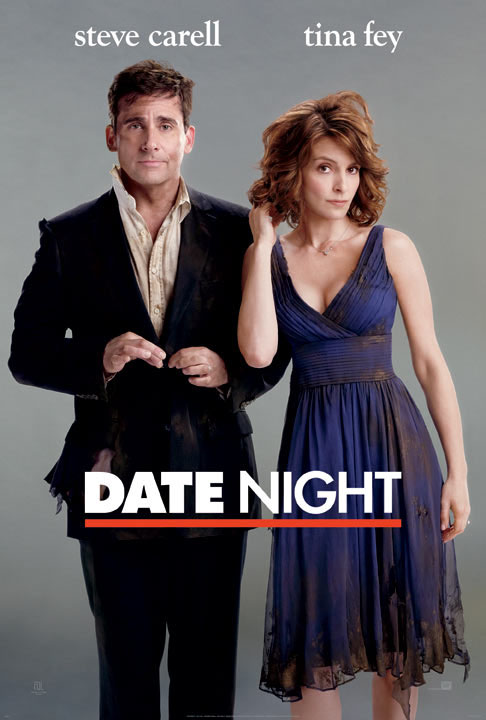

 The second couple is Holbrooke (Mark Wahlberg) and his date. Holbrooke is shirtless and hot. An old acquaintance of Claire's, he is an ex-military, black-ops dude who knows he can get a date. His date is hotter yet, a young foreign woman who wants one thing only from a relationship.
The second couple is Holbrooke (Mark Wahlberg) and his date. Holbrooke is shirtless and hot. An old acquaintance of Claire's, he is an ex-military, black-ops dude who knows he can get a date. His date is hotter yet, a young foreign woman who wants one thing only from a relationship. The third couple is Taste (James Franco) and Whipit (Mila Kunis), the low-life criminals who were the "Triplehorns". These two are in their 20s and madly in love. But their bickering and posturing are reminiscent of what the Fosters went through in their chase stopover. This is the Fosters 15 years earlier. It is a review of where they have come from and a reminder of where they are today and why.
The third couple is Taste (James Franco) and Whipit (Mila Kunis), the low-life criminals who were the "Triplehorns". These two are in their 20s and madly in love. But their bickering and posturing are reminiscent of what the Fosters went through in their chase stopover. This is the Fosters 15 years earlier. It is a review of where they have come from and a reminder of where they are today and why.






 When Willy meets Ted in the court-room at the arraignment, Ted waives his right to a lawyer and elects to defend himself and then pushes for a swift trial. Little does Willy know, Ted has masterminded the whole thing like clockwork. As in the modern ball-bearing motion-creations he makes, he has steered a path for his trial that only he knows.
When Willy meets Ted in the court-room at the arraignment, Ted waives his right to a lawyer and elects to defend himself and then pushes for a swift trial. Little does Willy know, Ted has masterminded the whole thing like clockwork. As in the modern ball-bearing motion-creations he makes, he has steered a path for his trial that only he knows.
 As the climax to the case approaches, Willy's character flaw causes him to grow, arcing from an over-confident cocky lawyer to a justice-seeking crusader. But as time runs out, Willy faces a choice: he can cross an ethical line and almost guarantee victory; or he can be honest and true and let the chips (or cracked egg shell pieces) fall where they may.
As the climax to the case approaches, Willy's character flaw causes him to grow, arcing from an over-confident cocky lawyer to a justice-seeking crusader. But as time runs out, Willy faces a choice: he can cross an ethical line and almost guarantee victory; or he can be honest and true and let the chips (or cracked egg shell pieces) fall where they may.
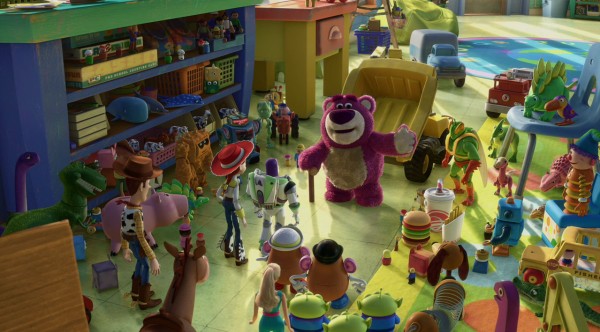 On their first day in their new "home" the toys meet the new leader of the toys, a cuddly, strawberry-scented bear called "Lots-o-hugging-bear", nicknamed Lotso (voice of Ned Beatty). He is soft-spoken and appears to be a caring grandfatherly type, tottering around on a cane with some other toys as helpers. This couldn't be further from the truth. He is a tyrant, running the place with an iron rule, keeping the new toys in their place: the Caterpillar Room, where unsupervised toddlers trash them and all-but-destroy them . . . on a daily basis.
On their first day in their new "home" the toys meet the new leader of the toys, a cuddly, strawberry-scented bear called "Lots-o-hugging-bear", nicknamed Lotso (voice of Ned Beatty). He is soft-spoken and appears to be a caring grandfatherly type, tottering around on a cane with some other toys as helpers. This couldn't be further from the truth. He is a tyrant, running the place with an iron rule, keeping the new toys in their place: the Caterpillar Room, where unsupervised toddlers trash them and all-but-destroy them . . . on a daily basis. Woody, though, is a special favorite of Andy's, who wants to take him to college. This cowboy toy must escape the confines of the daycare center and find his way back to Andy's home. His plan falls afoul and gets carried away by the wind; he finds himself in the care of a new owner. Here we meet some new toys, including a thespian hedgehog named Mr Pricklepants and another dinosaur Trixie. Perhaps the best pair of new toy characters are Barbie and Ken. Their lines are a hoot. Ken (voice of Michael Keaton) declares, when he first spies Barbie, "It's like we were made for each other!" Barbie (voice of Jodi Benson), on the other hand, shows she is more than just a pretty figure, with her understanding of modes of government, "Authority should derive from the consent of the governed, not from the threat of force!"
Woody, though, is a special favorite of Andy's, who wants to take him to college. This cowboy toy must escape the confines of the daycare center and find his way back to Andy's home. His plan falls afoul and gets carried away by the wind; he finds himself in the care of a new owner. Here we meet some new toys, including a thespian hedgehog named Mr Pricklepants and another dinosaur Trixie. Perhaps the best pair of new toy characters are Barbie and Ken. Their lines are a hoot. Ken (voice of Michael Keaton) declares, when he first spies Barbie, "It's like we were made for each other!" Barbie (voice of Jodi Benson), on the other hand, shows she is more than just a pretty figure, with her understanding of modes of government, "Authority should derive from the consent of the governed, not from the threat of force!"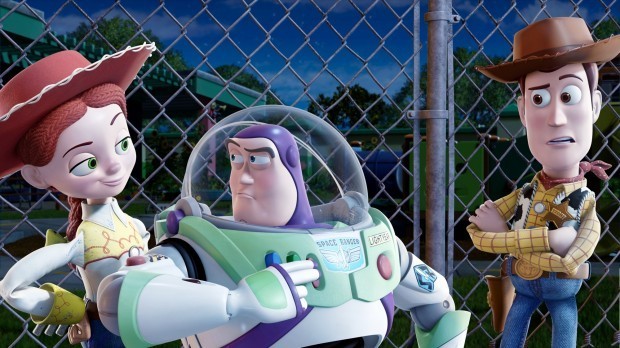 Woody himself offers the third perspective on growing up. Andy says, "Now Woody, he's been my pal for as long as I can remember. He's brave, like a cowboy should be. And kind, and smart. But the thing that makes Woody special, is he'll never give up on you... ever. He'll be there for you, no matter what." His view is that toys like him are supposed to keep on loving their owners forever, even when they are about to be discarded because they have been outgrown.
Woody himself offers the third perspective on growing up. Andy says, "Now Woody, he's been my pal for as long as I can remember. He's brave, like a cowboy should be. And kind, and smart. But the thing that makes Woody special, is he'll never give up on you... ever. He'll be there for you, no matter what." His view is that toys like him are supposed to keep on loving their owners forever, even when they are about to be discarded because they have been outgrown.



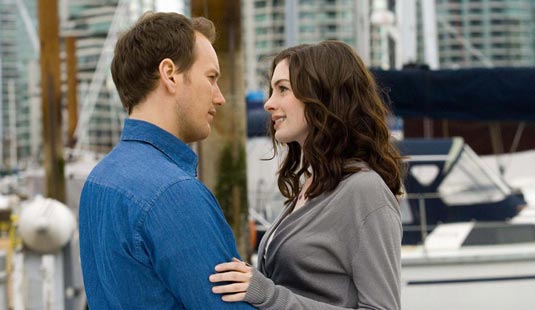 Passengers touches on a couple of topics worth exploring. First is perspective. Eric, a VP in a business firm, re-evaluates his life after surviving the crash. He realizes all his time invested in making the deal was worth nothing. As Jesus said, "What good will it be for a man if he gains the whole world, yet forfeits his soul?" (Matt. 16:26) There is so much more that he wants to do now that he has been given a second chance.
Passengers touches on a couple of topics worth exploring. First is perspective. Eric, a VP in a business firm, re-evaluates his life after surviving the crash. He realizes all his time invested in making the deal was worth nothing. As Jesus said, "What good will it be for a man if he gains the whole world, yet forfeits his soul?" (Matt. 16:26) There is so much more that he wants to do now that he has been given a second chance. 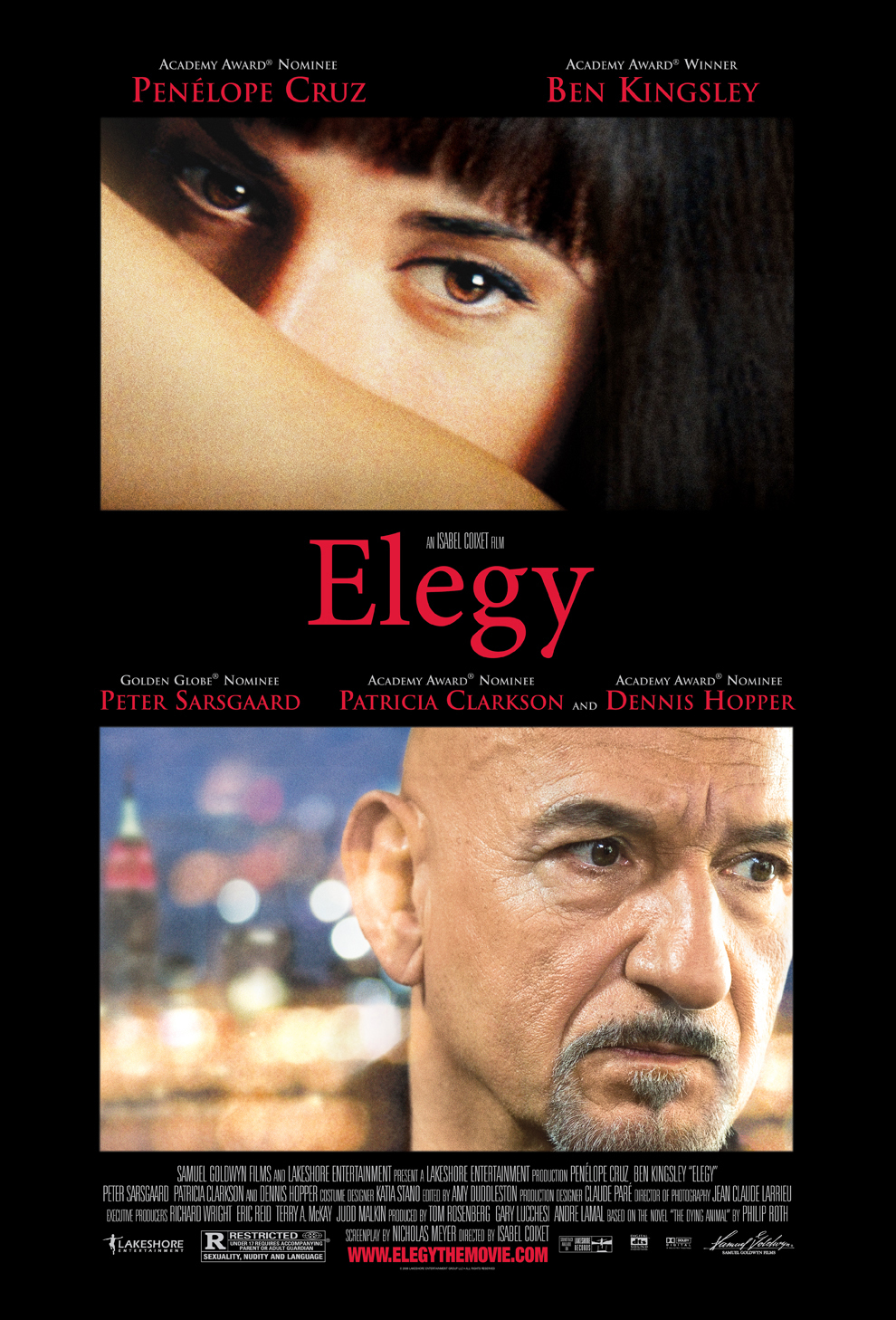

 Consuella (Penelope Cruz) walks into one of his classes and straight into his heart. Unlike any of the other myriad of women he has conquered and discarded, she stands out as classy, sophisticated, elegant and educated, a woman to be wooed. She has beauty that reminds Kepesh of beautiful art, momentary yet eternal. She is also 30 years younger than him and reminds of his lost youth. The wasted years.
Consuella (Penelope Cruz) walks into one of his classes and straight into his heart. Unlike any of the other myriad of women he has conquered and discarded, she stands out as classy, sophisticated, elegant and educated, a woman to be wooed. She has beauty that reminds Kepesh of beautiful art, momentary yet eternal. She is also 30 years younger than him and reminds of his lost youth. The wasted years. Fear of commitment is another factor in his psyche. He has no long-standing relationships except one male friend George (
Fear of commitment is another factor in his psyche. He has no long-standing relationships except one male friend George ( When he falls in love with Consuella he is forced to come face-to-face both with his age and his worldview. No longer can he use her and betray her. She is better than this. For the first time in his life he is insecure. He faces his own fear: fear of losing her. He believes it cannot last; the age gap is too great. Having given his heart, he fears it will be broken. And in this fear, he does what we often do: he sabotages this relationship.
When he falls in love with Consuella he is forced to come face-to-face both with his age and his worldview. No longer can he use her and betray her. She is better than this. For the first time in his life he is insecure. He faces his own fear: fear of losing her. He believes it cannot last; the age gap is too great. Having given his heart, he fears it will be broken. And in this fear, he does what we often do: he sabotages this relationship.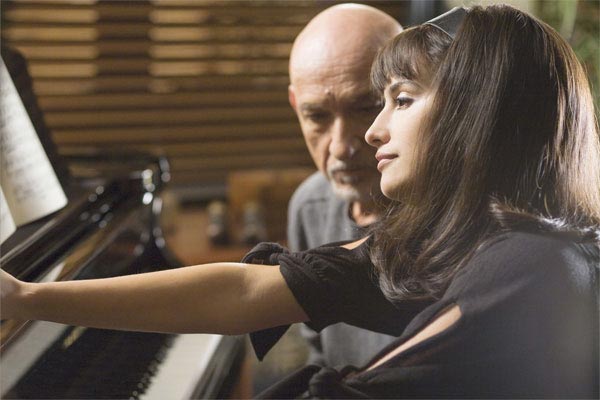 David is a connoisseur and a sophisticate. As a photographer and pianist, he knows art. He recognizes beauty.He can see the outward picture of beauty but what does he know of the inner beauty? Nothing. Until he meets Consuela.
David is a connoisseur and a sophisticate. As a photographer and pianist, he knows art. He recognizes beauty.He can see the outward picture of beauty but what does he know of the inner beauty? Nothing. Until he meets Consuela.




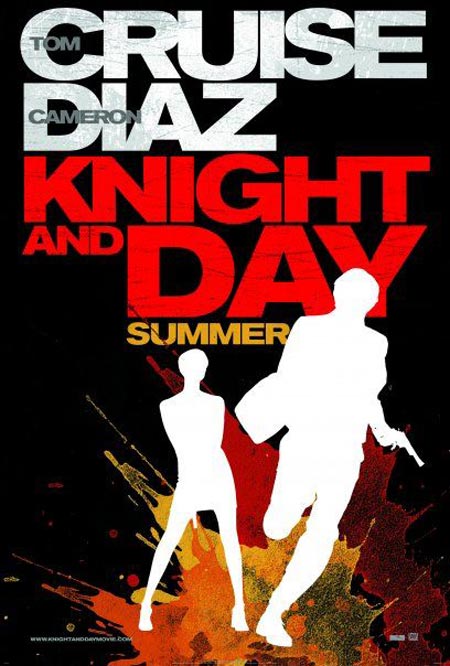


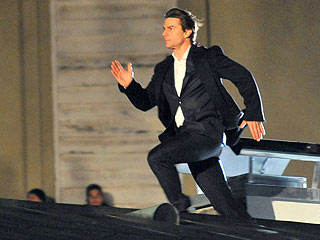 If truth be told, we all deeply want a protector, a knight in shining armor who can ride up to save us when the chips are down.We may not bump into Roy, or a real-life version. But we can bump into Jesus, a real protector. He is a true knight,"who gave himself as a ransom for all men" (1 Tim. 2:6). Indeed, God "has rescued us from the dominion of darkness and brought us into the kingdom of the Son he loves" (Col. 1:13). When bad guys are near, Jesus is close by. He is even nearer than Roy, for Jesus lives with us, in us (Gal. 2:20). He has promised never to leave or forsake us (Matt. 28:20; Heb. 13:5). That is the kind of white knight I want!
If truth be told, we all deeply want a protector, a knight in shining armor who can ride up to save us when the chips are down.We may not bump into Roy, or a real-life version. But we can bump into Jesus, a real protector. He is a true knight,"who gave himself as a ransom for all men" (1 Tim. 2:6). Indeed, God "has rescued us from the dominion of darkness and brought us into the kingdom of the Son he loves" (Col. 1:13). When bad guys are near, Jesus is close by. He is even nearer than Roy, for Jesus lives with us, in us (Gal. 2:20). He has promised never to leave or forsake us (Matt. 28:20; Heb. 13:5). That is the kind of white knight I want!
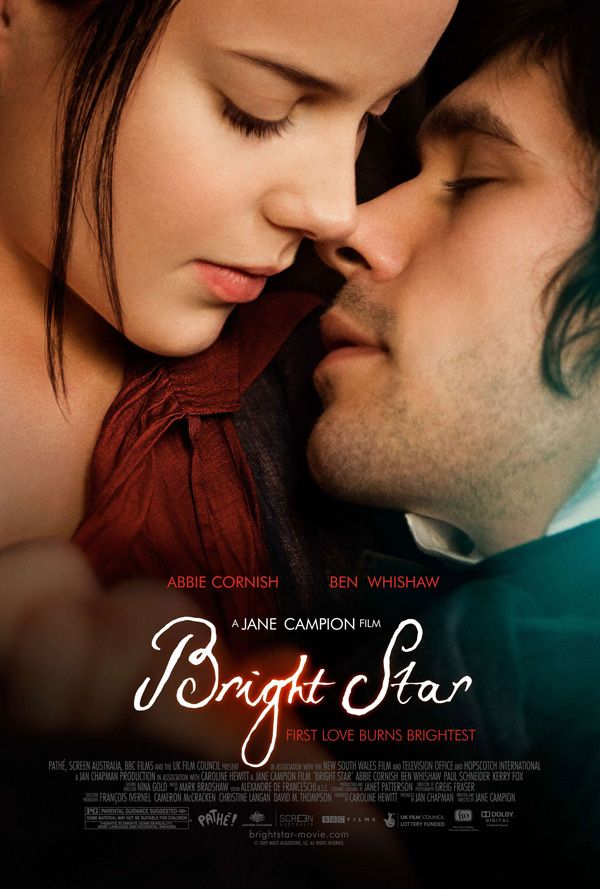

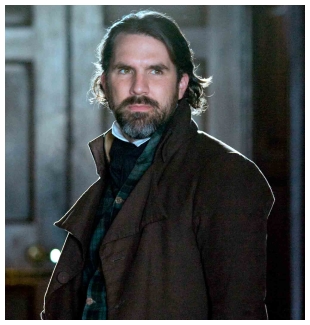 Fanny is literally the girl next-door. Keats lives with his friend Mr. Brown (Paul Schneider,
Fanny is literally the girl next-door. Keats lives with his friend Mr. Brown (Paul Schneider, 